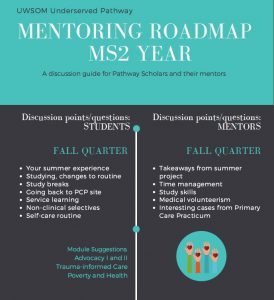 The Underserved Pathway mentorship is a longitudinal relationship to support students’ interest and commitment to caring for people who are under-resourced and marginalized.
The Underserved Pathway mentorship is a longitudinal relationship to support students’ interest and commitment to caring for people who are under-resourced and marginalized.
Please read the UP Guide to Mentorship to understand the goals and benefits of UP mentorship and how to foster a more meaningful relationship with your mentor.
Some mentor-mentee pairs use the Underserved Pathway Mentoring Roadmap to guide their quarterly check-ins. It has suggestions for discussion topics for all four years of medical school, with a few reminders about Pathway deadlines!
Who are Underserved Pathway mentors?
Underserved Pathway mentors are healthcare professionals from across the WWAMI region who are involved in the care of underserved populations in a variety of capacities. UP mentors must satisfy at least one of the following criteria:
– primarily care for underserved patients
– have extensive history of caring for underserved patients
– are from a group historically underrepresented in medicine
– conduct research related to the health of historically marginalized people
Why is mentorship impactful?
Working with a mentor provides students early and consistent exposure to professionals who can offer valuable insights into what it is like to care for underserved populations. These mentors can answer questions, provide advice, and support students through their education and professional development.
How do students find their mentors?
